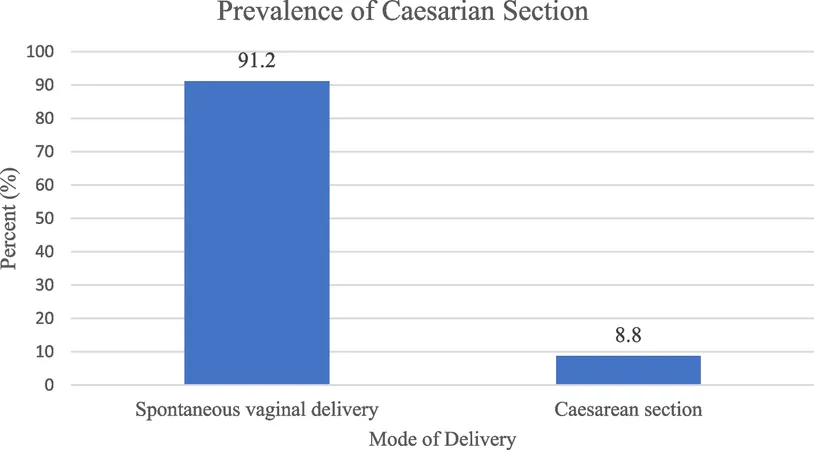
Are Remote Workers Missing Out? New Study Reveals Shocking Trends in Promotions and Pay Raises
2025-06-03
Author: Mei
Remote Work: The Hidden Career Trap
A groundbreaking study has unveiled startling evidence that staff who work from home—either partially or entirely—are at a distinct disadvantage when it comes to promotions and pay raises. Managers, it appears, harbor a bias against teleworkers, often perceiving them as less committed compared to their office-bound counterparts.
The Research Breakdown
Conducted by academics from the University of Warsaw, the research analyzed the perspectives of nearly 1,000 U.K. managers. Presented with fictional profiles of employees, some working remotely full-time, others in a hybrid model, the findings were eye-opening: - **11%** less likely to promote full-time remote workers. - **9%** less likely to grant pay raises to those working from home. - **8%** less likely to promote hybrid workers, and **7%** less likely to provide them with pay raises.
The Performance Paradox
Interestingly, when managers were informed that hybrid employee performance matched that of those in the office, their attitudes shifted. However, remote workers still faced a **6.5%** reduction in likelihood for pay raises and a **10%** decrease for promotions, even when performance levels were equivalent to their office colleagues.
Why the Bias? A Closer Look
The researchers, Professor Anna Matysiak, Dr. Agnieszka Kasperska, and Dr. Ewa Cukrowska-Torzewska, delved into this bias, attributing it to perceptions of low commitment. They noted that many managers equate an employee's physical presence with their dedication and availability. The authors stated, "Employees who favor flexible work arrangements, such as remote work, often stray from these expectations and are thus seen as less committed. Consequently, they might lose opportunities for promotions, raises, or training, regardless of their actual performance. "
Exceptions to the Rule: Moms at Work
Interestingly, the study found an exception: hybrid-working mothers did not suffer career setbacks when their performance was not known to managers, suggesting possible positive bias in their favor.
The Context of the Study
The survey, conducted online by YouGov from July to December 2022, captured a period when remote work remained prevalent, with about **40%** of employees engaging in it part-time. The sample encompassed **937 managers** responsible for at least five employees within companies of **10 or more workers**, ensuring a representative mix regarding company size and geography, as well as the managers' gender.
The Bottom Line: A Need for Change
This research sheds light on the systemic bias facing remote workers, emphasizing the need for organizations to reassess their criteria for promotions and raises. In an era where remote work is becoming the norm, it's crucial to tackle these prejudiced perceptions to ensure all employees receive fair evaluations based on their performance, not their physical presence.





 Brasil (PT)
Brasil (PT)
 Canada (EN)
Canada (EN)
 Chile (ES)
Chile (ES)
 Česko (CS)
Česko (CS)
 대한민국 (KO)
대한민국 (KO)
 España (ES)
España (ES)
 France (FR)
France (FR)
 Hong Kong (EN)
Hong Kong (EN)
 Italia (IT)
Italia (IT)
 日本 (JA)
日本 (JA)
 Magyarország (HU)
Magyarország (HU)
 Norge (NO)
Norge (NO)
 Polska (PL)
Polska (PL)
 Schweiz (DE)
Schweiz (DE)
 Singapore (EN)
Singapore (EN)
 Sverige (SV)
Sverige (SV)
 Suomi (FI)
Suomi (FI)
 Türkiye (TR)
Türkiye (TR)
 الإمارات العربية المتحدة (AR)
الإمارات العربية المتحدة (AR)